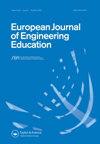基于阶段性评估与循环反馈(PALF)模型的教学推进
IF 2.8
Q2 EDUCATION & EDUCATIONAL RESEARCH
引用次数: 1
摘要
摘要反馈可以改善或削弱学生的学习成绩,这取决于反馈的时机和建构性。考虑到大多数班级学生的学习目标和评估任务的整体表现的多样性,一组学生可能会因延迟的纠正反馈而表现恶化,另一组学生在收到负面反馈后可能会立即表现恶化。分阶段评估和循环反馈(PALF)模型的实施对提高学生的学习成绩做出了明显贡献,该模型用于教授约120名一年级基础工程科目的学生。本文展示了PALF模型如何在两个连续阶段的任务之间提高学生的成绩。此外,还对大学管理的学生对受试者的反馈(SFS)调查和具体的问卷方法进行了严格审查,以评估学生对PALF模型的反思,该模型证明了其对学生体验和收到的反馈质量的直接积极影响。SFS评分趋势随着新模型的应用而上升,并在几年的实施中保持了其水平。本文章由计算机程序翻译,如有差异,请以英文原文为准。
Teaching advancement with Phased Assessments and Looped Feedback (PALF) model
ABSTRACT Feedback can improve or impair students’ learning performance, depending on its timing and constructiveness. Given the diversity of students’ study goals and overall performance in the assessment tasks within most classes, a group of students can experience a deteriorated performance from delayed corrective feedback, and another group can suffer immediate deterioration in their learning performance following negative feedback. The implementation of the Phased Assessments and Looped Feedback (PALF) model has made a demonstrable contribution to improving students’ learning outcomes when used to teach about 120 students undertaking the first-year cornerstone engineering subjects. This paper demonstrates how the PALF model has improved students’ grades between two consecutively phased tasks. Furthermore, university administered student feedback on subjects’ (SFS) surveys and specific questionnaire methods were conducted and critically reviewed to evaluate students’ reflection on the PALF model, which demonstrates its immediate positive impact on students’ experience with the quality of feedback received. The SFS scoring trends are seen elevating following the application of the new model and sustained its level over several years of implementation.
求助全文
通过发布文献求助,成功后即可免费获取论文全文。
去求助
来源期刊

European Journal of Engineering Education
EDUCATION & EDUCATIONAL RESEARCH-
CiteScore
7.30
自引率
13.00%
发文量
64
期刊介绍:
European Journal of Engineering Education is published six times a year in print and electronic editions and provides an essential forum for dialogue between researchers and specialists in the field of engineering education, at European and worldwide levels. European Journal of Engineering Education is the Official Journal of SEFI, the Socièté Européenne pour la Formation des Ingénieurs (the European Society for Engineering Education). SEFI is a non-governmental organization whose aims are to develop information about engineering education, to improve communication and exchange between professors, researchers and students and to promote cooperation between the various institutions concerned with engineering education.
 求助内容:
求助内容: 应助结果提醒方式:
应助结果提醒方式:


